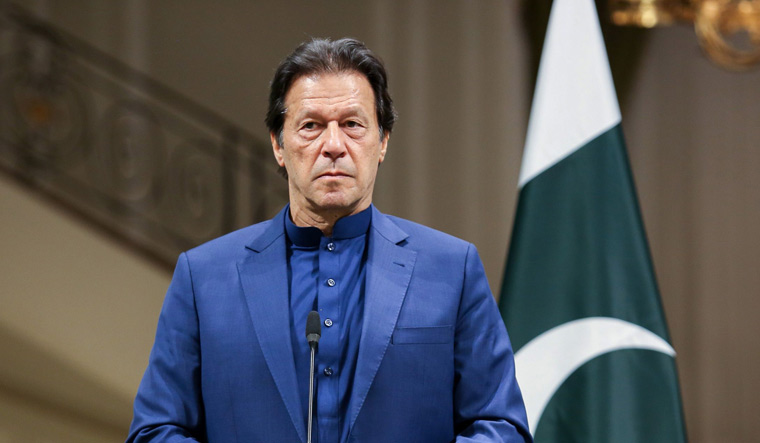ISLAMABAD, Apr 10: Pakistan will have a new Prime Minister on Monday when the National Assembly, which was adjourned in the early hours of Sunday, reconvenes to elect a new head of the government after Imran Khan was ousted from office through a no-confidence vote, becoming the first premier in the country’s history to suffer this ignominy.
The combined Opposition has already named Pakistan Muslim League-Nawaz (PML-N) president Shehbaz Sharif as its joint candidate to replace Khan.
The marathon proceedings of the National Assembly, Parliament’s lower house, were adjourned in the early hours of Sunday to meet again on Monday at 2 pm to elect the new prime minister.
Khan, 69, the country’s 22nd prime minister, was unceremoniously removed from the office through the no-confidence vote, becoming the first premier in Pakistan’s history to be ousted through a no-trust motion.
He was sworn as the prime minister of Pakistan on August 18, 2018 and the no-confidence motion against him was passed on April 10, 2022 after which his term as the premier came to a sudden end.
His 1,332-day tenure as prime minister which began on Saturday, August 18, 2018 ended on Sunday, April 10, 2022.
The cricketer-turned-politician served as the prime minister of Pakistan for three years seven months and 23 days, which in terms of months is around 43 months and 23 days, Geo News reported.
The term of the current House is up to August, 2023.
Ayaz Sadiq of the PML-N, who was chairing the crucial session, said the nomination papers for the new prime minister may be submitted by 2 PM on Sunday and the scrutiny would be done by 3 PM.
He summoned the session on Monday at 11 AM and said the new premier would be elected then. However, the National Assembly of Pakistan later informed on its official Twitter account that the House will meet at 2 PM.
“The Sitting of the National Assembly will meet again on Monday, the 11th April, 2022 at 2:00 p.M. Instead of 11:00 a.M,” it tweeted.
Earlier, Sadiq was nominated by Speaker Asad Qaiser to chair the session after the leader of Imran Khan’s party, Pakistan Tehreek-e-Insaf (PTI), announced to step down as it was not possible for him to continue.
Sadiq immediately started the voting process.
The joint Opposition – a rainbow of socialist, liberal and radically religious parties – secured the support of 174 members in the 342-member National Assembly, more than the needed strength of 172 to oust the prime minister on a day full of drama and multiple adjournments of the lower house.
No Pakistani prime minister has ever completed a full five-year term in office.
Khan was not present in the lower house at the time of voting. His party lawmakers staged a walkout during the voting. However, PTI’s dissident members were present in the house and sat on the government benches.
The removal of Khan has set in motion the process to elect the new leader of the house.
Khan, who came to power in 2018 with promises to create a ‘Naya Pakistan’, was dogged by claims of economic mismanagement as his government battled depleting foreign exchange reserves and double-digit inflation.
He apparently also lost support of the powerful Army after he refused to endorse the appointment of the ISI spy agency chief last year. Finally he agreed but it soured his ties with the powerful Army, which has ruled the coup-prone country for more than half of its 75 years of existence and has hitherto wielded considerable power in the matters of security and foreign policy.
Khan wanted to keep Lt Gen Faiz Hameed as the spy chief but the army high command transferred him by appointing Corps Commander in Peshawar. (PTI)
Trending Now
E-Paper


